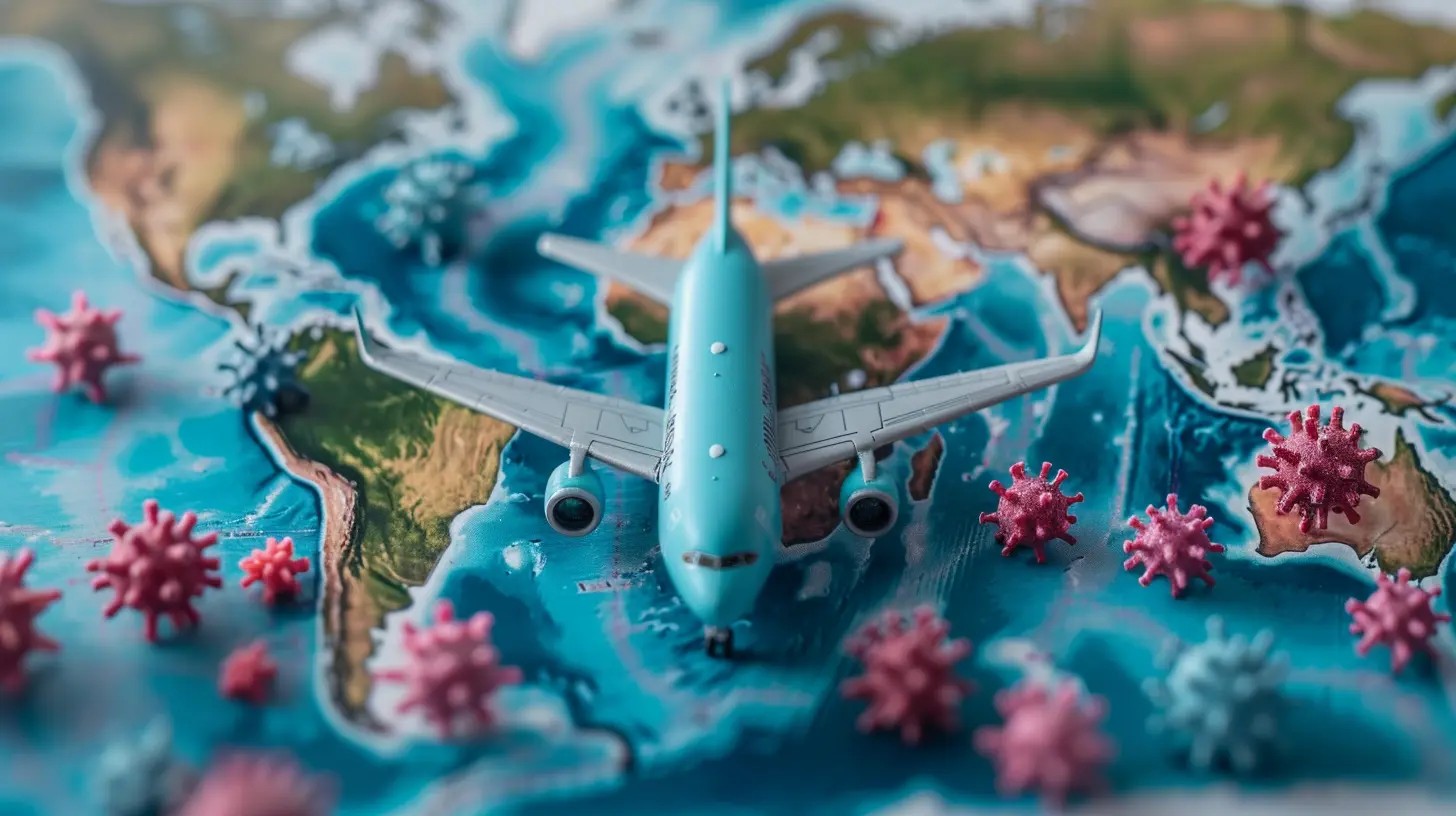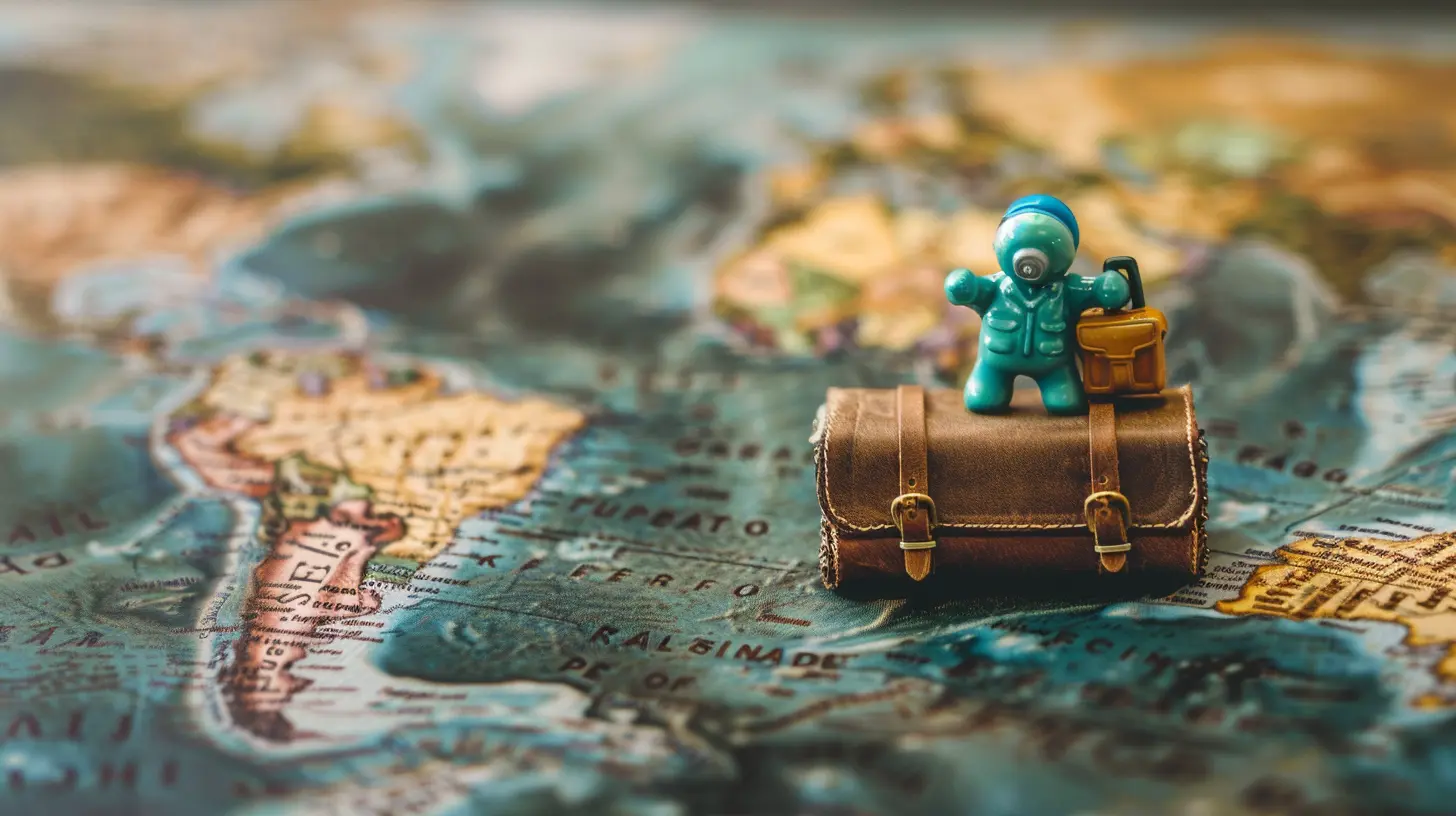The Role of Travel Insurance During Pandemics
27 July 2025
Let’s face it—traveling in a post-pandemic world isn't as carefree as it used to be. What was once a spontaneous escape is now layered with fine print, health declarations, and endless “what ifs.” Among all the things travelers have to think about now, one that stands out like a flashing neon sign is travel insurance. But not just any travel insurance—we’re talking about the real MVP during turbulent times: pandemic-ready policies.
So, why does travel insurance matter more than ever now? How exactly does it protect you when the unexpected hits? And most importantly, what should you look for in a policy if there’s a public health crisis on the horizon again? Buckle up, folks—we're diving deep.
Why Travel Insurance Took Center Stage During the Pandemic
Before COVID-19, travel insurance was often seen as a “nice-to-have” rather than a “must-have.” People would skim past it while booking flights or hotels, thinking, “Eh, what are the chances I’ll need it?” Well, enter 2020, and suddenly those chances went from slim to sky-high overnight.Flights were getting canceled left and right. Borders slammed shut without warning. People got stranded abroad or fell ill far from home. The chaos was real, and only those with good travel insurance were able to breathe a tiny sigh of relief. In many cases, insurance became the safety net no one knew they needed until the ground crumbled beneath them.
What Exactly Does Travel Insurance Cover During a Pandemic?
You might wonder, “Okay, but does travel insurance actually help during a health crisis?” Great question. Here’s a breakdown of what a comprehensive travel insurance policy could cover during a pandemic:1. Trip Cancellations and Interruptions
Let’s say your destination suddenly goes into lockdown a week before your trip, or you catch a virus and can’t travel. A solid policy should refund your non-refundable bookings like flights, hotels, or tours.2. Medical Coverage Abroad
If you fall sick while traveling—and yes, that includes being diagnosed with a virus like COVID—travel insurance can cover your medical expenses, which could easily run into thousands of dollars in foreign hospitals.3. Quarantine Expenses
Imagine testing positive abroad and being forced to stay longer. Some policies now cover unexpected quarantine costs, including accommodation and meals. Not glamorous, but way better than burning through your vacation fund.4. Evacuation and Repatriation
In worst-case scenarios, if you need to be medically evacuated or returned home due to serious illness, this coverage can be a literal lifesaver—both physically and financially.5. 24/7 Assistance Services
Pandemic or not, stuff goes wrong. But during a global health emergency, having someone to guide you—whether it's rebooking flights, finding nearby hospitals, or navigating travel advisories—makes a world of difference.
What Travel Insurance Doesn’t Always Cover
Now, let’s get real for a second. Not all policies are created equal. Some have more holes than Swiss cheese, and relying on them can be downright risky.- Fear of Travel: Feeling uneasy about traveling during a pandemic? Unless you have a “Cancel For Any Reason” (CFAR) add-on, standard policies usually don’t cover cancellations based on fear alone.
- Government Travel Warnings: If your destination already has a travel ban or advisory and you still go, don’t expect coverage to follow you there.
- Pre-Existing Medical Conditions: These are often excluded unless you get a waiver. This is crucial, especially during a health crisis.
Bottom line: Read the fine print like your bank account depends on it—because it actually might.
How COVID-19 Changed Travel Insurance Forever
Let’s talk long-term impact. COVID-19 didn’t just shake up our travel habits—it forced the entire insurance industry to pivot, adapt, and evolve fast. Here’s how:1. Pandemic Coverage Became a New Standard
Before 2020, most policies straight-up excluded pandemics. Now, insurers are rushing to include them. Some even offer specific COVID-19 coverage. It's like the industry finally woke up and figured out that global viruses aren’t as rare as we thought.2. Flexibility is the New Norm
Remember the old days when changing flights meant extra fees and headaches? Now, both airlines and insurers are offering more flexible terms to keep travelers booking with confidence.3. Demand for CFAR Policies Exploded
Cancel For Any Reason (CFAR) options—which let you cancel a trip for literally any reason and still get ~50-75% of your money back—have become hot. Yes, they’re more expensive. But for anxious travelers, that peace of mind is priceless.What to Look for in Pandemic-Ready Travel Insurance
Alright, so you’re convinced you need it. Now what? Here’s your no-BS checklist for buying the right travel insurance when a pandemic is in the mix:- ✅ Explicit Coverage for Pandemics or Epidemics
- ✅ COVID-19 Diagnosis Included Under Medical Benefits
- ✅ Trip Cancellation and Interruption Including COVID-19 Related Reasons
- ✅ Coverage for Quarantine-Related Expenses
- ✅ Cancel For Any Reason (CFAR) Option
- ✅ 24/7 Global Assistance
- ✅ Telehealth Access (Some insurers now offer virtual doctor services)
Not all companies will offer everything, so prioritize what’s most important to you based on your destination, duration, and personal health situation.
Common Travel Insurance Myths—Debunked
Let’s bust some myths that might be circulating faster than a flu virus:💬 “My credit card covers me, so I’m good.”
Reality? Most credit card travel protection is weak sauce. It often excludes pandemics, has limited coverage amounts, and doesn’t include medical evacuation.💬 “I’m young and healthy—I don’t need insurance.”
Sorry to break it to you, but viruses don’t care about your age. Also, accidents still happen. Don’t gamble with your health (or your wallet).💬 “I’ll just get it later if something goes wrong.”
Too late. You need to buy travel insurance before something goes south. It’s not retroactive.Real Stories That Hit Home
Want some real talk? Let’s look at what a few travelers went through and how insurance (or lack of it) changed their fate.🙁 Traveler 1: Stuck in Thailand, No Coverage
Brandon flew to Thailand just before lockdowns hit. He didn’t have any insurance. When he fell ill, he had to pay $6,000 out of pocket for treatment and another $2,500 for a last-minute evacuation flight.🙂 Traveler 2: Covered and Cared For in Spain
Jess got stuck in Spain during the pandemic. She had a comprehensive travel insurance policy. When she tested positive, her insurer covered hotel quarantine, translation services during her hospital visit, and rebooked her flight home.The difference? A few hundred bucks upfront versus thousands and major stress later.
How to File a Claim During a Pandemic
Here’s a quick-and-dirty guide to filing a claim if your travel plans blow up due to a pandemic:1. Contact Your Insurer ASAP – Most have 24/7 hotlines. Use them.
2. Gather All Documentation – Think: Positive test results, quarantine orders, airline or hotel cancellation emails, receipts.
3. Submit Your Claim Clearly & Promptly – The faster you submit, the faster you get reimbursed.
4. Follow Up – Don’t be afraid to check in or escalate your case if it’s dragging.
Pro tip: Keep digital and hard copies of everything. In times of crisis, paper trails are your best friends.
Final Thoughts: Is Travel Insurance Worth It?
If the pandemic taught us anything, it's this: Stuff happens. Fast.Travel insurance isn’t just another box to tick—it’s your financial parachute. In an age of unpredictable borders, surprise variants, and changing travel rules, having a good policy is like bringing an umbrella into a storm. You might not need it, but if you do, you’ll be glad it’s there.
So, before you hit that “book now” button or pack your suitcase, ask yourself: Can I afford not to be insured?
all images in this post were generated using AI tools
Category:
Travel InsuranceAuthor:

Taylor McDowell
Discussion
rate this article
2 comments
Ramona Hernandez
Travel insurance is no longer optional; it’s essential. In an unpredictable world, having coverage during pandemics protects your investments and provides peace of mind. Don’t take chances with your travels—secure your journey and safeguard your health with the right policy.
October 29, 2025 at 5:52 PM

Taylor McDowell
I completely agree! Travel insurance has become crucial for safeguarding both health and investments during these unpredictable times. It offers necessary protection and peace of mind for travelers.
Nancy Gonzalez
Amidst uncertainty, travel insurance becomes a lifeline, weaving safety into the fabric of wanderlust. What hidden protections lie within its fine print during global crises?
August 2, 2025 at 3:53 PM

Taylor McDowell
Travel insurance offers crucial protections like trip cancellations, medical coverage, and emergency evacuations during global crises. However, it's vital to read the fine print, as coverage often varies significantly based on specific circumstances and policy details.


